WHAT IS ERASMUS+
Erasmus + is a European Union program with a lot of content that aims to unite countries and organizations for specific topics.TherearevarietiessuchasTraining Course, SeminarAdultEducationandlast but not least Youth Exchange programmewhichweparticipatedin
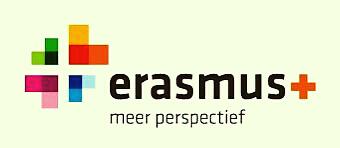
WHENIAMATANERASMUS+PROJECTIFEELAT HOMEEVENTHOUGHIAMINADIFFERENTCOUNTRY. AYCELEN-TÜRKİYE
EUROPEAN SOLIDATORY CORPS
The European Solidarity Corps is an EU funding programme for young people wishing to engage in solidary activities in a variety of areas. These range from helping the disadvantaged to humanitarian aid, as well as contributing to health and environmental action across the EU and beyond.


via : https://ec.europa.eu/info/funding-tenders/find-funding/eu-funding-programmes/european-solidarity-corps en
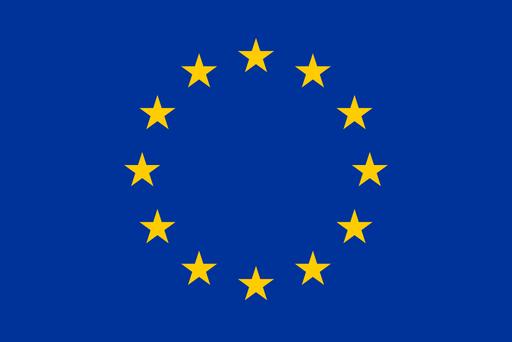
VOLUME4000
NOVEMBER,2022 WEEKLYUPDATEDERASMUS+NEWS
BANSKOTIMES
ERASMUS INTERNSSHIP
Erasmus+ supports traineeships (work placements, internships) abroad at any workplace for students currently enrolled in higher education institutions in Programme Countries at short-cycle Bachelor and Master level as well as for doctoral candidates. These opportunities are also open to recent graduates.
To go on an internship abroad you must be registered at an institution of higher education and be studying for a higher qualification. Examples include bachelors, masters or doctoral degrees. Erasmus also allows you to train abroad more than once, as long as the total does not exceed twelve months per study cycle. The host organisation where you will do your internship can be private or public.
This includes all the EU member states plus Iceland, Norway, Liechtenstein, Turkey and Croatia.
Traineeships abroad can receive Erasmus+ support from 2 to 12 months.
You can apply through the international or Erasmus+ office of your higher education institution.
via :https://erasmus-plus ec europa eu/opportunities/opportunities-for-individuals/students/traineeshipsabroad-for-students
PROFESSIONAL DEVELOPMENT
via:https://erasmus-plus.ec.europa.eu/opportunities/opportunities-for-individuals/trainees/networkingand-training
Erasmus+ supports the professional development of youth workers through training or networking periods abroad. Periods abroad can consist of training courses, study visits, job shadowing or observation periods at relevant organisations and more.
ABOUT YOUTH EXCHANGE
Youth Exchanges involve young people from different countries meeting and working togetheronasharedtopic.
TheyouthexchangeprogramwearecurrentlyinisoneoftheErasmus+programs Youthexchangeprogram:
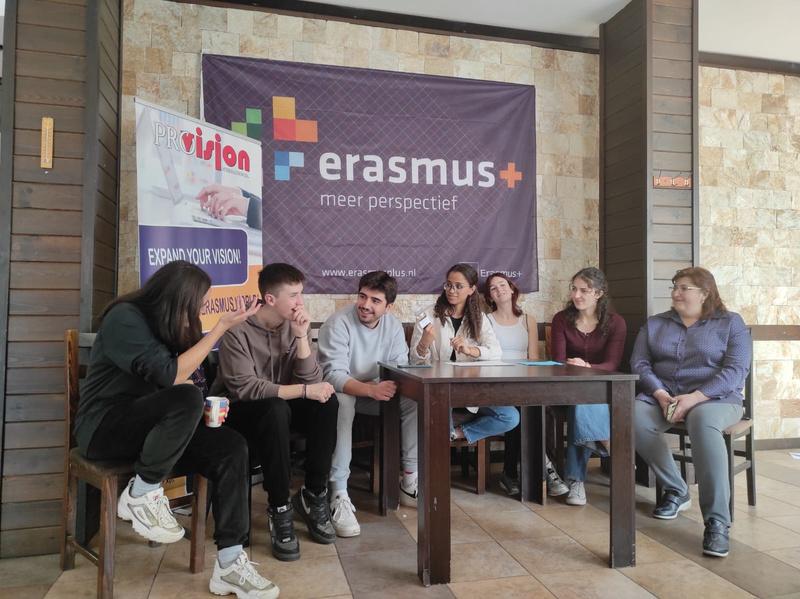
· Youthexchangecoversindividualsbetweentheagesof13-30.
· Itincludes5-21dayexchanges.
. TravellingandaccomodationcostsarecoveredbyE.U.grant. Itisaccompaniedbyafacilitator.
· Thegroupleadermaybeolder.
Aslongastheagelimitallows,youcanparticipateintheprogramindefinitely via :https://erasmus-plus ec europa eu/opportunities/opportunities-for-individuals/youth-exchanges
ERASMUS+ANDHUMANRIGHTS
With increasing usage of social media hurting and judging people [mostly minorities] became easier thus hate speech and cyberbullying are very common and normalized these days among young people.
Thence as the young people of our generation we took a step to tackle all the negative narratives we face today.
We gathered in Bansko ,Bulgaria at November 5th to gain an understanding and awareness among young people about human rights and human rights violations.

The activities included in the project were mainly inspired by real life events and helped us recognize human rights violations and furthermore teached us how to stand against them.
Activities brought out our creative side as well by challenging us with tasks like coming up with a slogan and creating a grafitti design. With such learning methods we educated ourselves in an intercultural space outside of classroom and get to experience different point of views and we all achieved it with teamwork
Aside from the well planned , educational and improvment focused activities we also get a chance to expand our vision by attending intercultular nights which is the perfect oppurtunity for one to learn how to represent their country as well as all the unique beauty that cultures have while getting to know other cultures their beauty their specialities and getting ahead of misrepresentations plus stereotypes
HUMAN RIGHTS PROTECTION Steps 4
DAY 1 (Sunday): Our first day of the project was getting to know each other. After stating our names and nationalities, we then proceeded to play various interactive games which helped us remember everyone's names and a bit about themselves. Our final activity for the day involved going out to Bansko city in groups and searching for answers to questions or completing tasks related to Bulgarian culture.
With the help of those games and the motivation to achieve the same goal, from a room full of strangers we quickly turned into friends.
And while we were learning about Bulgarian culture all of us realized that since we are countries which are close , if not neighboring, we have more similarities than differences.


FIRSTDAY!
Day 2 (Monday): For our second day, after being split into groups, we were asked to find information, either online or from personal experience about Erasmus+ in general and the various exchange programs it embodies. We then had to present our findings to the rest of the groups. Our project facilitators then provided us with a more extensive presentation of the topics above, giving us a clear understanding of how Erasmus+ works and how the youth exchange program fits into the greater picture.
Our second assignment for the day was to prepare and act out a mini play depicting certain predetermined concepts related to human rights. The rest of the groups, as the audience, were then made to guess the assigned concept. A theoretical group discussion of the concept then followed. Finally, working in our in our national teams, we were asked to prepare presentations on how hate speech and cyberbullying arise in our individual countries.

SECOND DAY
THIRD DAY

Day 3 (Tuesday) Our third day began with us presenting our work from the previous evening and imediately discussing our thoughts and impressions. For our next task we were asked, as groups, to each pick a human rights violation and a particular affected social group. We then had to the rootsl causes of the problem, by making use of the so called 'problem tree tool', a visual way of representing the relationship between a problem and it's solutions as a tree. Finally, in preparation for a later workshop, we were asked to find examples of graffiti art promoting human rights and in turn to think of our own ideas for such a work of art.
The day ended with a intercultural night. All national teams presented a bit of their culture displaying traditional food from their country for everyone to sample.

Day 4 (Thursday) On our fourth day, we were briefly introduced to the concept of forum (a.k.a. participatory) theatre and were then asked to create our own such plays in groups. Each group was to act out it's own play the first time, while the second time members of the audience were encouraged to stand up and take the place of the actors.
Each play had to depict a real life situation involving an oppressor and a victim and participating members of the audience would try and give new life to the character they were impersonating in an attempt to resolve the social conflict present in the script.


FIFTH DAY
Day 5 (Friday) On our fifth day, Kiril Stoilov, a famous graffiti artist from Blagoevgrad, was invited to our work session of the day. After telling us a bit about himself and his art, he divided us into teams and asked us to think of ideas for graffiti paintings related to cyberbullying, hate speech and human rights. We then went on to give shape and form to our ideas on 2 metre wide canvases, using graffiti sprays and the invaluable help and suggestions of our special guest.



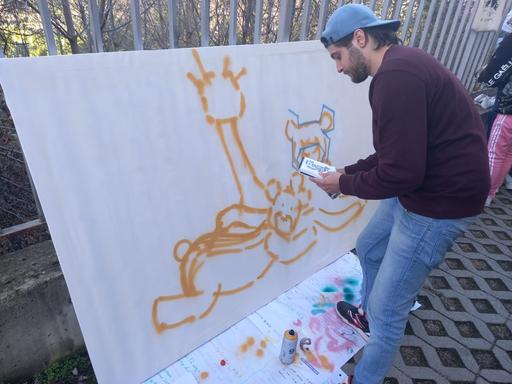

SIXTH
DAY
Learning Outcomes
Learning the importance of our role in situations regarding human rights violations
Being able to recognise human rights violations in our lives and knowing how to stand up for our rights
Increase self confidence
Analyzing a problem as deeply as possible for better solutions
Bringing out our creativity
Learning through non textbook style methods
Teamwork
Being exposed to new points of view
Developing better communication skills
Learning different countries' approach to human rights
Becoming aware of human rights violations and how young people can help prevent them
YOUth M VE .
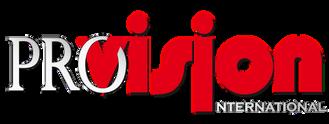
Funded by the European Union Views and opinions expressed are however those of the author(s) only and do not necessarily reflect those of the European Union or the European Education and Culture Executive Agency (EACEA). Neither the European Union nor EACEA can be held responsible for them.






















